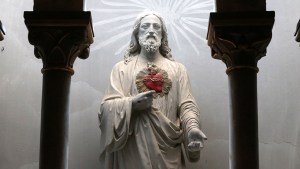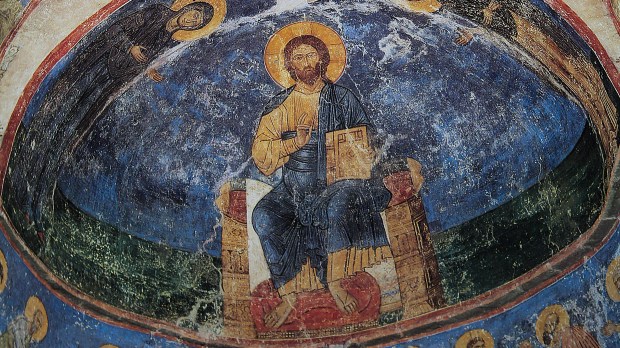One of the most popular devotional prayers in Christianity, besides the Rosary and the Our Father, is the “Jesus Prayer.”
The Catechism of the Catholic Church even devotes an entire paragraph to explaining this biblical prayer.
This simple invocation of faith developed in the tradition of prayer under many forms in East and West. The most usual formulation, transmitted by the spiritual writers of the Sinai, Syria, and Mt. Athos, is the invocation, “Lord Jesus Christ, Son of God, have mercy on us sinners.” It combines the Christological hymn of Philippians 2:6-11 with the cry of the publican and the blind men begging for light. By it the heart is opened to human wretchedness and the Savior’s mercy. (CCC 2667)
It is an ancient prayer that was popular among the Desert Fathers and is found in a collection of Eastern Christian spiritual writings called The Philokalia. This collection of writings dates back to the 4th century and includes authors such as St. Anthony the Great, St. John Damascus, and St. Mark the Ascetic.
Practically speaking, the prayer has many forms (all of which are acceptable):
- Lord Jesus Christ, have mercy on me!
- Lord Jesus Christ, Son of God, have mercy on me, a sinner.
- Lord Jesus Christ, Son of God, have mercy on us sinners.
- Lord Jesus, have mercy!
Different schools of spirituality will explain the “mechanics” of the prayer, some suggesting that the prayer be coordinated with a person’s breath.
Above all, it is meant to be much more than a “formula” of prayer, but a part of a person’s soul, praying constantly to Jesus and remaining in his presence.

Read more:
12 Short prayers invoking the name of Jesus

